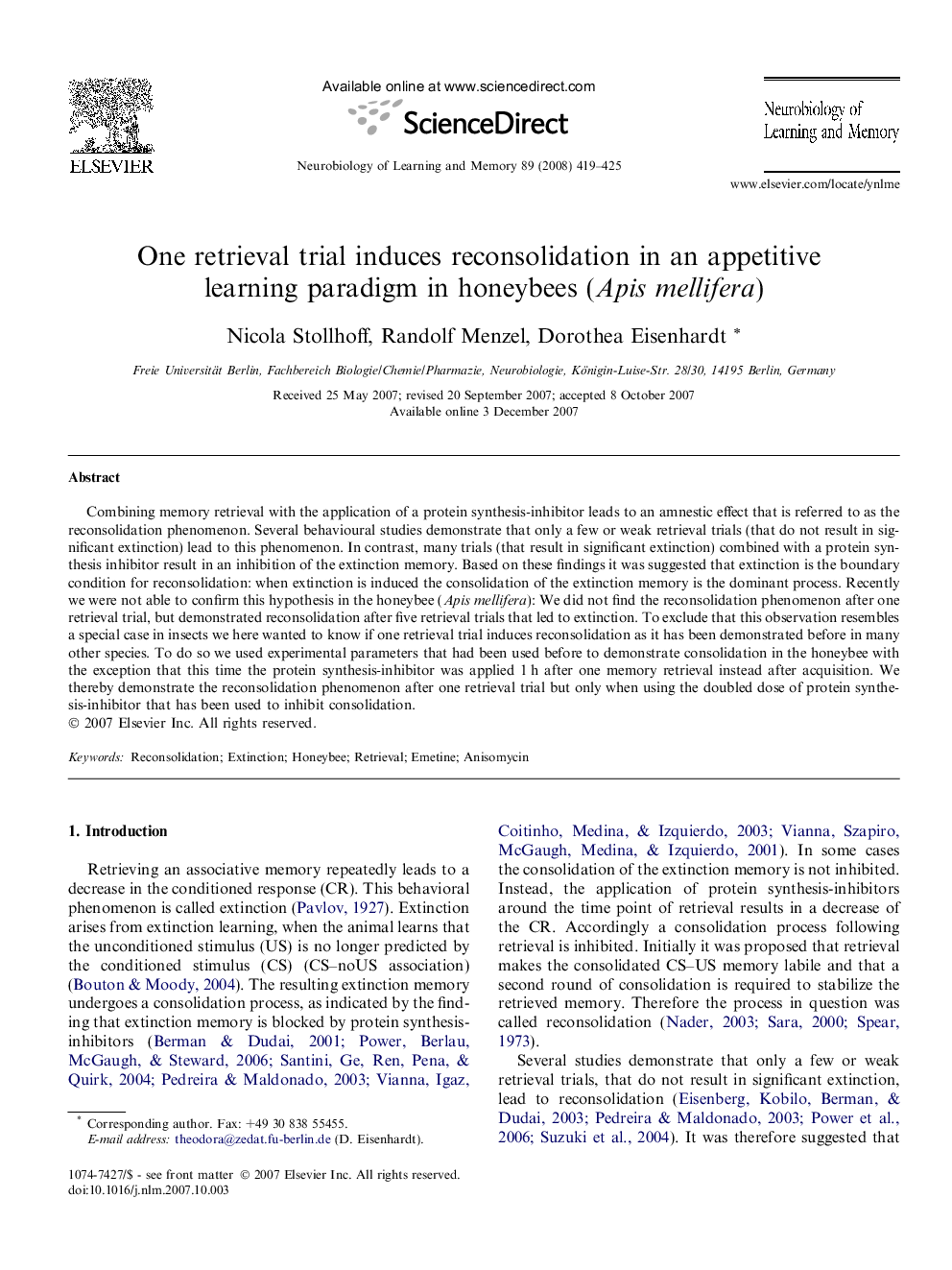| Article ID | Journal | Published Year | Pages | File Type |
|---|---|---|---|---|
| 937018 | Neurobiology of Learning and Memory | 2008 | 7 Pages |
Combining memory retrieval with the application of a protein synthesis-inhibitor leads to an amnestic effect that is referred to as the reconsolidation phenomenon. Several behavioural studies demonstrate that only a few or weak retrieval trials (that do not result in significant extinction) lead to this phenomenon. In contrast, many trials (that result in significant extinction) combined with a protein synthesis inhibitor result in an inhibition of the extinction memory. Based on these findings it was suggested that extinction is the boundary condition for reconsolidation: when extinction is induced the consolidation of the extinction memory is the dominant process. Recently we were not able to confirm this hypothesis in the honeybee (Apis mellifera): We did not find the reconsolidation phenomenon after one retrieval trial, but demonstrated reconsolidation after five retrieval trials that led to extinction. To exclude that this observation resembles a special case in insects we here wanted to know if one retrieval trial induces reconsolidation as it has been demonstrated before in many other species. To do so we used experimental parameters that had been used before to demonstrate consolidation in the honeybee with the exception that this time the protein synthesis-inhibitor was applied 1 h after one memory retrieval instead after acquisition. We thereby demonstrate the reconsolidation phenomenon after one retrieval trial but only when using the doubled dose of protein synthesis-inhibitor that has been used to inhibit consolidation.
